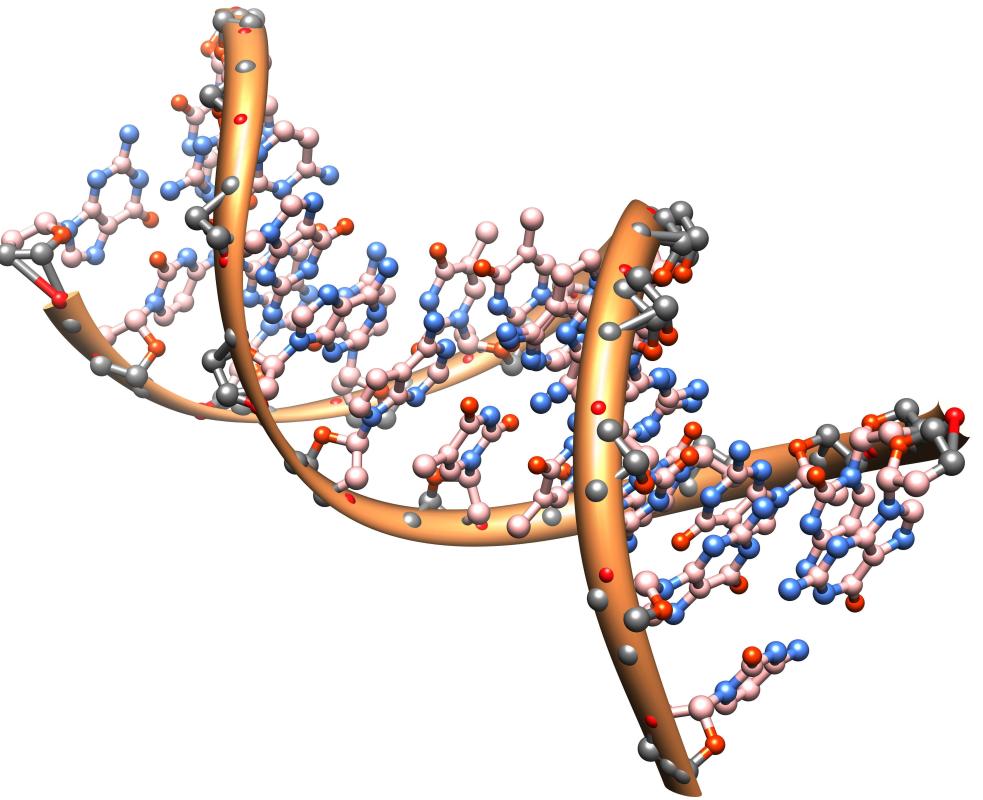At WiseGEEK, we're committed to delivering accurate, trustworthy information. Our expert-authored content is rigorously fact-checked and sourced from credible authorities. Discover how we uphold the highest standards in providing you with reliable knowledge.
What is Molecular Medicine?
Molecular medicine involves applying knowledge about the molecular basis of disease and how new clinical practices can be brought to bear. It includes practices, such as interventions on the cellular and/or DNA level including genetic and cellular therapies, and incorporating new understanding, such as those that have grown out of studying the posttranslational modification of proteins. It often makes reference to such specialties as genomics, proteomics, and bioinformatics.
The tiny factors that are mostly widely known as being manipulated in the practice of molecular medicine are genes and DNA. There is hope that studying genomic medicine will enable the knowledge gained to be put into practice preventively and personally, providing individually designed solutions to medical issues. Nevertheless, this does not represent the entire breadth of the field. Other factors that are involved in molecular medicine include antibiotics, carbohydrates, enzymes, hormones, inorganic polymers, lipids, metals, synthetic organic polymers, viruses, and vitamins.

A recent report on the use of nanoparticles of gold help clarify what molecular medicine is and what it can and may be able to do. The therapy involving the gold turns around the discovery of the capabilities of siRNA (“short interfering” RNA), a ribonucleic acid with the ability to “turn off” specifically targeted genes. They do this, as their name suggests, by interfering with the messenger RNA that is sent by a gene to create a protein.

The problem has been that first, introducing the necessary quantities of siRNA into human cells and also keeping it from being broken down before it could act have been insurmountable obstacles. Gold nanoparticles have now been proven to be able to carry siRNA into cultures of human cells by the work of a team at Northwestern University in Evanston, Illinois. They found that using gold nanoparticles to deliver the siRNA, rather than introducing it alone substantially increased its lifetime. Additionally, the siRNA delivered with the gold nanoparticles was twice as effective in reducing the activity of the cells to which they were added as siRNA alone was.
The next step will be to test the technique in living bodies, because what works in a culture does not necessarily translate. The hope is that this type of technique will be able to be used to “turn off” targeted genes, thus disabling viruses such as HIV-AIDS, as well as disabling human genes that have been linked by the Human Genome Project to disorders and diseases, such as cancer.
AS FEATURED ON:
AS FEATURED ON:












Discussion Comments
@simrin-- If you don't do a specialization, you could work in the laboratory. If you do graduate studies like Masters and PhD in Molecular Medicine, you can work as a scientist, researcher or you could be a lecturer at Universities.
You don't have to work with disease but I think many of the specialized fields under molecular medicine do study disease. For example, molecular pathology is exactly that, studying various molecules to diagnose disease. Molecular parasitology studies disease causing parasites.
But fields like molecular bioinformatics, which deals with information technology and molecular biotechnology which deals with genetic engineering can give you more freedom.
Thank you for this article. Molecular medicine sounds like a very interesting area. I know I want to study medicine but I don't know which area to concentrate on. Molecular medicine, more specifically molecular biosciences, sounds very exciting.
Can you tell me more about what the various options are for someone who studies molecular medicine, career wise?
For example, if I studied molecular medicine, will I have to work in molecular interaction with disease or are there other types of research I can do in this field?
I also got the idea from the description of molecular medicine that each disease has a connection to one or more genes in the body. How can that be? How can we treat an illness caused by a virus that we became infected with when it did not pass on to us genetically?
I think that gene expression studies is the most exciting and promising part of molecular medicine.
I've heard about siRNA and RNAi studies before on TV programs and also from my daughter who tells me about her molecular medicine courses sometimes. I've been excited about it ever since! I know that studies on humans are yet to be done, but if we can manage to turn off certain disease causing genes in the body, we can essentially eliminate disease altogether.
I'm a diabetes patient and even if it doesn't happen in my lifetime, I hope that molecular medicine will give my children and grandchildren the option of preventing diabetes thanks to this technology.
Post your comments